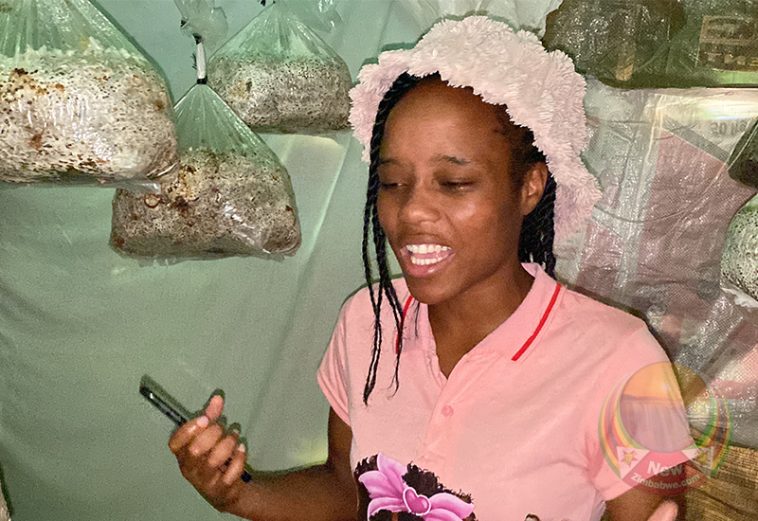By Leopold Munhende
NYASHADZASHE Mavhangira (22) of Stoneridge, Harare reckons she is now in a better position to deal with Covid-19 if the pandemic ever makes an unfortunate, ravaging return.
Mavhangira’s family survived on vending before lockdown periods that stopped most forms of informal business and had to endure difficult times during restrictions that followed the outbreak.
With no money, no food and no plan all they could do was wait for periodic relief as rising numbers of infections made it difficult for the Zimbabwe government to relax the lockdown measures.
Entrepreneurship training through Plan International saw Mavhangira and two of her colleagues starting Kins Mushroom, a mushroom-farming venture; which turned out to be a well-thought-out answer to urban hunger, as the numbers of those at risk rose during the pandemic.
The venture started at less than US$100, and saved Mavhangira and her family from an ‘imminent end.’
A recent visit revealed she could be telling the truth; Kins Mushroom’s efforts might just be enough to save and serve them through another pandemic.
“During Covid-19’s restrictive periods, things were really tough. We had been surviving on vending at Makoni shops in Chitungwiza where I would spend the day attending to my mother’s stalls before we were no longer allowed out of our homes,” said Mavhangira.
“When lockdowns were announced and extended, we were forced to look for other ways to survive.
“Everything was just tough for us, we struggled to even feed ourselves before we got these business ideas. This business helped us survive Covid-19. It saved us from dying of hunger when we expected to.
“Even if Covid-19 resurfaces with the same force that was witnessed we can survive. We are now even able to uplift others.”
Further financial support from Plan International through its Harare Urban Youth Empowerment (HUYE) programme has watered their dreams.
The two-year-long HUYE is centred on needy Epworth and Stoneridge, running till end of this year. 475 young people have already benefitted.
“We want this business to grow, we want to sell to people far from where we stay, to sell to large supermarket chains across the country such as OK,” added Mavhangira as she tended to hanging plastics full of their produce.
“This business now feeds and clothes us although we are still investing a lot more than we are spending on ourselves.
“If we look at where we came from and where we are, we appreciate the support and help we have received from every corner; friends, parents, neighbours and Plan International.”
Over 2.2 million people are still in dire need of food aid in Harare. Covid-19 did not do any favours.
Having started off on a neighbour’s property, Kins Mushroom has managed to build its own dark room, complete with hygiene regulations.
The Mavhangira family’s survival is no longer based on the crowded Makoni streets, their business now sells itself despite the eat-what-you-hunt environment they live in.
“HUYE was developed to support youths affected by Covid-19, especially young women to pursue decent work. This was meant to ensure they are more resilient towards future shocks,” said Plan International’s Programme Coordinator Oriah Musendo.
Beneficiaries of the programme pay back loans to Plan International to ensure others in similar need benefit.

